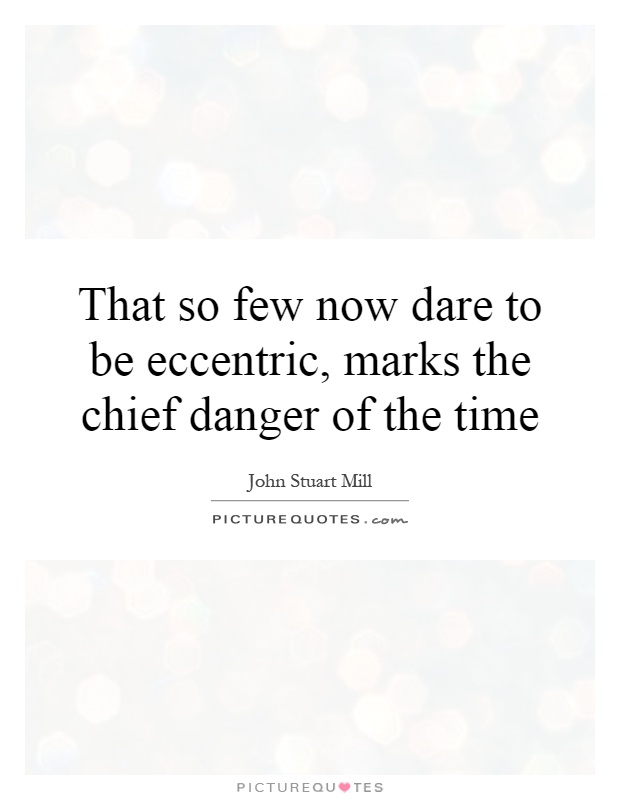That so few now dare to be eccentric, marks the chief danger of the time

That so few now dare to be eccentric, marks the chief danger of the time
John Stuart Mill, a prominent philosopher and political economist of the 19th century, was a strong advocate for individuality and freedom of thought. He believed that society should encourage and embrace eccentricity, as it is a sign of creativity and innovation. In his essay "On Liberty," Mill famously stated, "That so few now dare to be eccentric, marks the chief danger of the time." This quote reflects his concern that conformity and social pressure were stifling individuality and hindering progress.Mill believed that eccentricity was essential for societal advancement because it challenged the status quo and pushed boundaries. He argued that without eccentric individuals who were willing to think differently and question established norms, society would become stagnant and oppressive. By embracing eccentricity, society could benefit from new ideas and perspectives that could lead to positive change and growth.
In the context of Mill's philosophy, the chief danger of the time is the suppression of individuality and the fear of being different. In a society that values conformity and uniformity, eccentricity is often seen as a threat to social order and stability. People are discouraged from expressing their unique thoughts and ideas for fear of being ostracized or ridiculed. This conformity leads to a lack of diversity in thought and limits the potential for innovation and progress.
Mill believed that individuals should be free to express themselves and pursue their own interests, even if they are considered eccentric by societal standards. He argued that diversity of thought and expression is essential for a healthy and vibrant society. By embracing eccentricity, society can foster creativity, encourage critical thinking, and promote individuality.












 Friendship Quotes
Friendship Quotes Love Quotes
Love Quotes Life Quotes
Life Quotes Funny Quotes
Funny Quotes Motivational Quotes
Motivational Quotes Inspirational Quotes
Inspirational Quotes